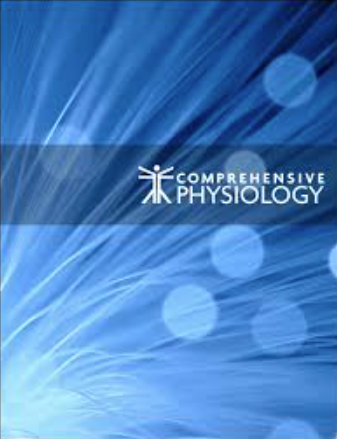下载PDF
{"title":"昼夜节律对生理系统分子调控的影响","authors":"G Ryan Crislip, Jermaine G Johnston, Lauren G Douma, Hannah M Costello, Alexandria Juffre, Kyla Boyd, Wendy Li, Cheoting C Maugans, Miguel Gutierrez-Monreal, Karyn A Esser, Andrew J Bryant, Andrew C Liu, Michelle L Gumz","doi":"10.1002/cphy.c210011","DOIUrl":null,"url":null,"abstract":"<p><p>Nearly every system within the body contains an intrinsic cellular circadian clock. The circadian clock contributes to the regulation of a variety of homeostatic processes in mammals through the regulation of gene expression. Circadian disruption of physiological systems is associated with pathophysiological disorders. Here, we review the current understanding of the molecular mechanisms contributing to the known circadian rhythms in physiological function. This article focuses on what is known in humans, along with discoveries made with cell and rodent models. In particular, the impact of circadian clock components in metabolic, cardiovascular, endocrine, musculoskeletal, immune, and central nervous systems are discussed. © 2021 American Physiological Society. Compr Physiol 11:1-30, 2021.</p>","PeriodicalId":10573,"journal":{"name":"Comprehensive Physiology","volume":null,"pages":null},"PeriodicalIF":4.2000,"publicationDate":"2021-12-29","publicationTypes":"Journal Article","fieldsOfStudy":null,"isOpenAccess":false,"openAccessPdf":"https://www.ncbi.nlm.nih.gov/pmc/articles/PMC11514412/pdf/","citationCount":"0","resultStr":"{\"title\":\"Circadian Rhythm Effects on the Molecular Regulation of Physiological Systems.\",\"authors\":\"G Ryan Crislip, Jermaine G Johnston, Lauren G Douma, Hannah M Costello, Alexandria Juffre, Kyla Boyd, Wendy Li, Cheoting C Maugans, Miguel Gutierrez-Monreal, Karyn A Esser, Andrew J Bryant, Andrew C Liu, Michelle L Gumz\",\"doi\":\"10.1002/cphy.c210011\",\"DOIUrl\":null,\"url\":null,\"abstract\":\"<p><p>Nearly every system within the body contains an intrinsic cellular circadian clock. The circadian clock contributes to the regulation of a variety of homeostatic processes in mammals through the regulation of gene expression. Circadian disruption of physiological systems is associated with pathophysiological disorders. Here, we review the current understanding of the molecular mechanisms contributing to the known circadian rhythms in physiological function. This article focuses on what is known in humans, along with discoveries made with cell and rodent models. In particular, the impact of circadian clock components in metabolic, cardiovascular, endocrine, musculoskeletal, immune, and central nervous systems are discussed. © 2021 American Physiological Society. Compr Physiol 11:1-30, 2021.</p>\",\"PeriodicalId\":10573,\"journal\":{\"name\":\"Comprehensive Physiology\",\"volume\":null,\"pages\":null},\"PeriodicalIF\":4.2000,\"publicationDate\":\"2021-12-29\",\"publicationTypes\":\"Journal Article\",\"fieldsOfStudy\":null,\"isOpenAccess\":false,\"openAccessPdf\":\"https://www.ncbi.nlm.nih.gov/pmc/articles/PMC11514412/pdf/\",\"citationCount\":\"0\",\"resultStr\":null,\"platform\":\"Semanticscholar\",\"paperid\":null,\"PeriodicalName\":\"Comprehensive Physiology\",\"FirstCategoryId\":\"3\",\"ListUrlMain\":\"https://doi.org/10.1002/cphy.c210011\",\"RegionNum\":2,\"RegionCategory\":\"医学\",\"ArticlePicture\":[],\"TitleCN\":null,\"AbstractTextCN\":null,\"PMCID\":null,\"EPubDate\":\"\",\"PubModel\":\"\",\"JCR\":\"Q1\",\"JCRName\":\"PHYSIOLOGY\",\"Score\":null,\"Total\":0}","platform":"Semanticscholar","paperid":null,"PeriodicalName":"Comprehensive Physiology","FirstCategoryId":"3","ListUrlMain":"https://doi.org/10.1002/cphy.c210011","RegionNum":2,"RegionCategory":"医学","ArticlePicture":[],"TitleCN":null,"AbstractTextCN":null,"PMCID":null,"EPubDate":"","PubModel":"","JCR":"Q1","JCRName":"PHYSIOLOGY","Score":null,"Total":0}
引用次数: 0
引用
批量引用


